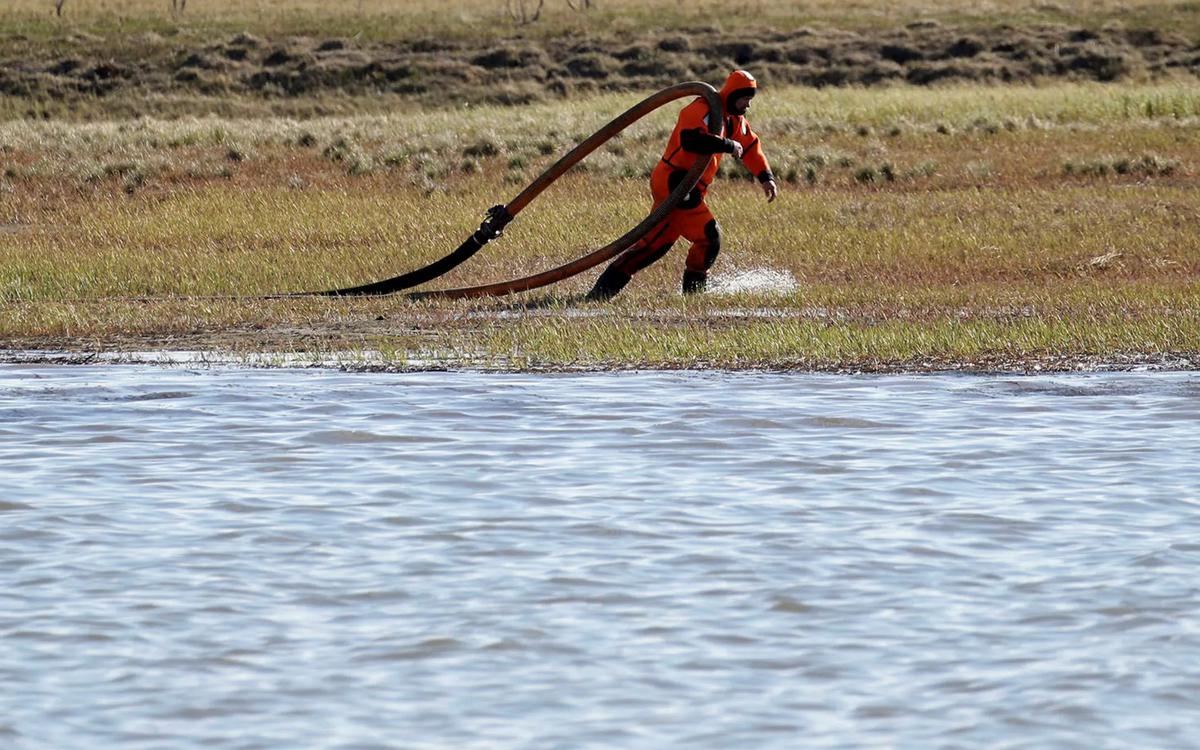This Week’s Highlights
Russian authorities finally admit that their Covid-19 mortality numbers don’t add up; we track the fallout from an environmental disaster that rocks a key Arctic city; we report concerns over an attempt to rig local elections in annexed Crimea; plus, the Russian government unveils the coronavirus recovery plan and it is, well, a tad bizarre.
Want to get the full story? Click the links below for full-length articles in Russian.
Moscow Admits Higher Covid-19 Death Rate
Nearly 6,000 Covid-19 deaths have been officially reported in Russia — an extremely low rate for a country with almost half a million cases. Last month, our journalists ran an investigation on how authorities were undercounting Moscow’s Covid-19 deaths. Officials rejected these claims. Then, in an unprecedented turnaround, the capital’s health department confirmed the Covid-19 death rate is higher than initially reported.
What has changed?Moscow officials have decided to apply the World Health Organization recommendations to their statistics. It takes into account patients who tested positive for Covid-19 but died of other causes as well as patients who fit the clinical picture for the infection during autopsy but tested negative for it. The new analysis suggests that Moscow’s real Covid-19 mortality rate for April is 1561 people - two and a half times higher than previously recorded by officials. But even these figures still only account for 85% of excess deaths.
How do we count from here?Moscow is the country’s ‘ground zero’ for Covid-19, and it means that Russia’s overall death rate could also be significantly higher than officially declared. Although several indicators suggest this is likely, it’s currently impossible to determine because the regional mortality data hasn’t yet been released. As we previously reported, Russia’s regional Covid-19 statistics also aren’t adding up.
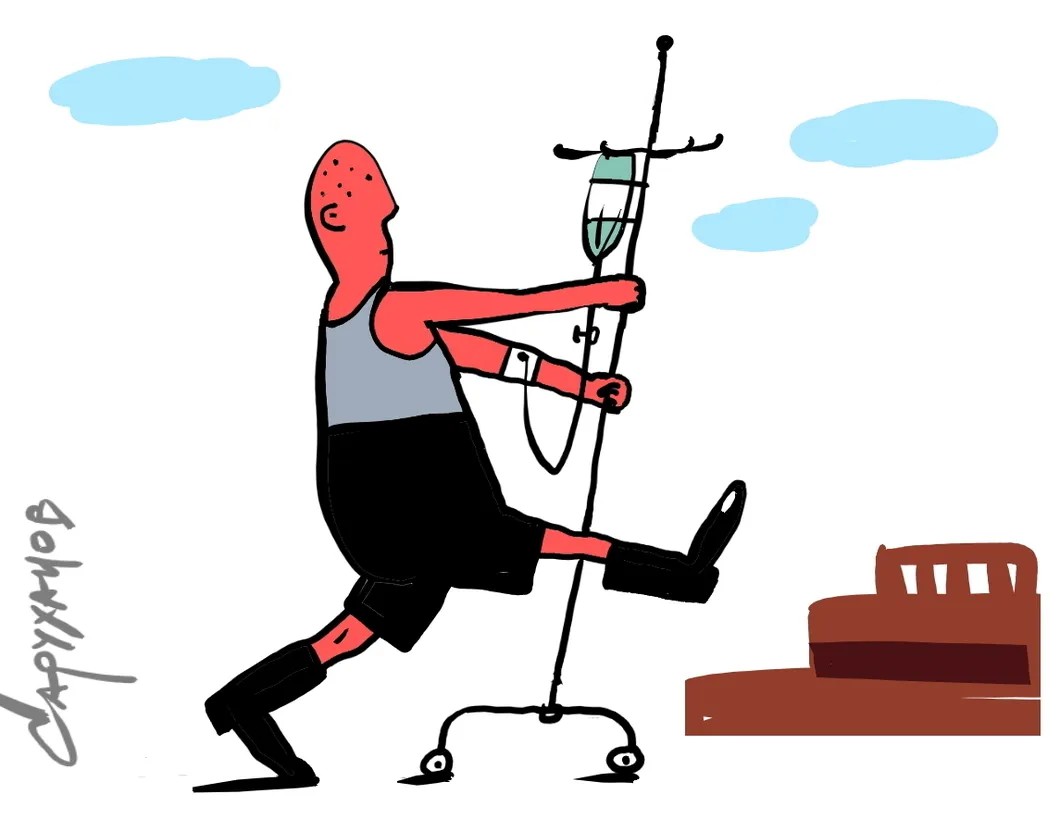
“They killed my mother before my eyes.” Speaking of botched Covid-19 response in Russian regions, this week, we bring you a story from Georgievsk, a town in the Southern Russian region of Stavropol. Local doctor Sergei Chekalin had to watch his mother die in front of him in hospital. Olga Chekalina was diagnosed with pneumonia but sent home without being tested for coronavirus. Later she ended up in intensive care. Sergei watched his mother died after a failed intubation by a therapist with no proper knowledge.
Failure to test and diagnose.Only later Sergei was also tested positive for coronavirus. But it was too late — several people got infected by him at the mother’s funeral. Moreover, it turned out that the hospital did not have enough protective equipment — local residents would buy raincoats for doctors as protective suits and alcohol for disinfectant. In many cases, we also learned that doctors concealed the Covid-19 diagnosis so that the hospital would not be quarantined.
Russians ordered not to think about the pandemic.After hitting the peak in May, Russia’s Covid-19 cases have consistently stayed above the daily 8000-new case mark. Before, authorities used the number to justify strict quarantine measures. It remains as high, but now Russians are being told that the danger has passed. They can return to everyday life — namely having a parade and other mass events in support of the upcoming constitutional vote that is likely to prolong Putin’s rule to 2036. The reasons seem pretty political, warns in a new op-ed by our politics editor Kiril Martynov.
Ignore reality, and don’t worry about it. “In April, medical officials would have called this pure insanity, but now they push for quarantine rollback without obvious rational justification. It seems that for purely political reasons (an urgent need for a new constitution and a higher approval rating) and some economic reasons (the self-isolated folks would really like to eat), Russians are being ordered to not pay attention to the coronavirus,” Martynov writes.
Read the full story on Russia’s Covid-19 mortality rate here, the story of how a doctor lost his mother to hospital Covid-19 mismanagement here and Kiril Martynov’s op-ed here.
Newest Environmental Disaster in the Russian Arctic, Explained
On May 29, around 20,000 tons of diesel fuel spilled after a fire at a power station in the Siberian city of Norilsk. It poisoned nearby rivers and drifted towards the Kara Sea. Greenpeace Russia rates the catastrophe ‘unprecedented,’ and President Putin declared a state of emergency. The power station is owned by Russian mining giant Nornickel, which is notorious for flouting safety regulations and poisoning local residents with hazardous leaks. Our correspondents Yulia Polukhina and Irek Murtazin, are on the ground covering the disaster.
Ignoring the catastrophe for days.The power station didn’t report the spill for two days. It was local environmental activist Alexey Knizhnikov who alerted the authorities about it and forced them to act. The real cleanup began with the help of eco-activists and not Nornickel or the government. The big question is, why didn’t Nornickel immediately request large-scale assistance, and why did Knizhnikov have to call the rescue workers and not Nornickel, Polukhina asks rhetorically.
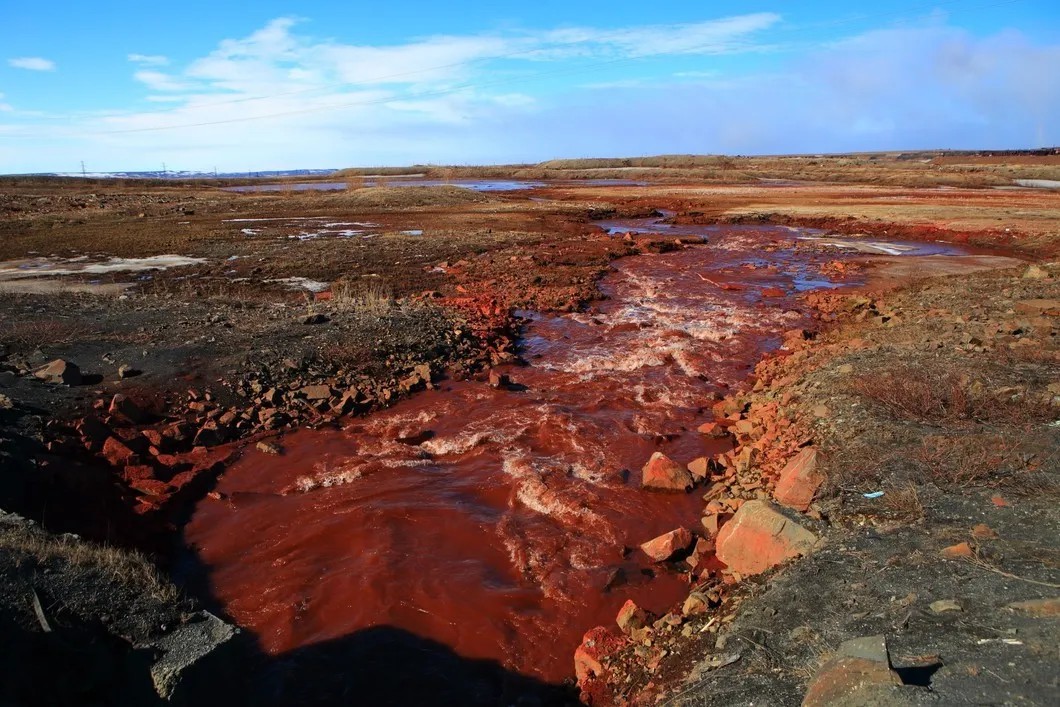
Years of big profits didn’t result in better and safer infrastructure. The officials suspect the deterioration of equipment could have contributed to the accident — the thermal power plant, mines, and utility networks all date back to the Soviet Union. Aging infrastructure stands in stark contrast to Nornickel’s riches — it is the largest nickel producer in the world and earned over $13.6 billion in 2019 alone.
Nobody cares about preventing catastrophes either.Nornickel safety check-ups and prevention protocols have deteriorated after the plant got privatized in the 1990s. An industry expert and former Nornickel employee, Rinat Fayzulin tells us: “Before, there were special building engineers-superintendents, who would make sure that the foundation and piles were normal so that cracks did not appear.” Now, there is nothing like that. The head of the city said that they had abolished the department that monitored the pile foundations.”
There were many red flags before the spill.Local environmentalist Alexei Knizhnikov says even before the accident at the plant, production waste from Nornickel would be flowing into local rivers:
“Previous spills have already caused great damage to living organisms in the river and in the lake. Their number decreased significantly, and the fish are so poisoned that the fishermen are warned: don’t eat the fish from this lake under any circumstance.”
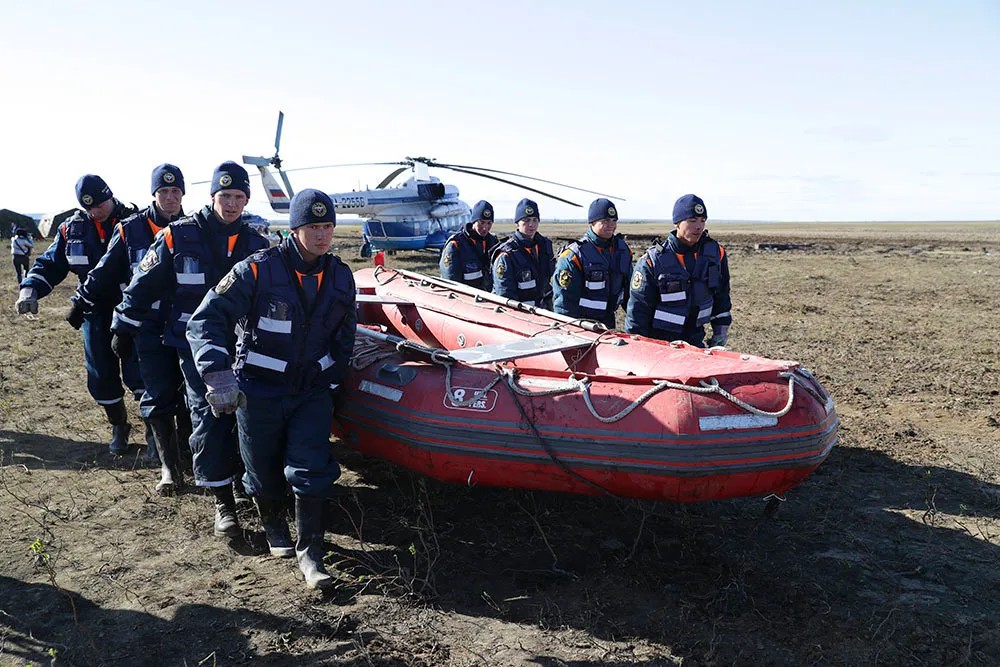
The environment and health of locals are hostages to corporate profits.Norilsk authorities keep their mouths shut about serial environmental crimes by Nornickel — the city incomes come from the company. The federal government gives it a free pass for the same reason: Nornickel accounts for almost a percent of Russia’s GDP and 2.6 percent of Russia’s exports in 2018 alone.
Concerns over the fair investigation.Nornickel owner Vladimir Potanin has promised to foot the cleanup bill (around $146.5 million). Still, the company will also have to pay a fine. How big? Russia’s natural resources watchdog Rosprirodnadzor will decide. According to our sources, Potanin flew the agency’s head to the disaster zone on a private jet with the trip’s cost estimated at $150,000 minimum.
Backstory. In recent years, the Russian government has poured billions of dollars into military development in the Arctic as it rushes to take over new trading routes that are opening up due to climate change. This expansion comes at the cost of severe environmental degradation and economic ruin for local communities. Massive fuel spill in Norilsk is now exacerbating the problem on both ends. The ecological damage could last more than a decade, and Russian arctic expansion plans could hit.
Read the full story on the Norilsk environmental disaster here and more about the trip taken by the Rosprirodnadzor head here.
Unopposed Local Election in Annexed Crimea, Investigated
Russia’s ruling party tests opposition suppression tricks on the annexed region. This week we report from Sevastopol, a special status city in Crimea with a direct rule from Moscow, where the opposition battles a shady trick to re-elect acting governor, unopposed.
What is happening? Sevastopol is governed by multiple municipal councils. Seven deputies from the ruling United Russia party faction resigned at a recent meeting of one of them, leaving it short of a quorum. This forces the body to self-dissolve. Another municipality tried to pull the same move. If successful, it would trigger municipal snap elections in these districts.
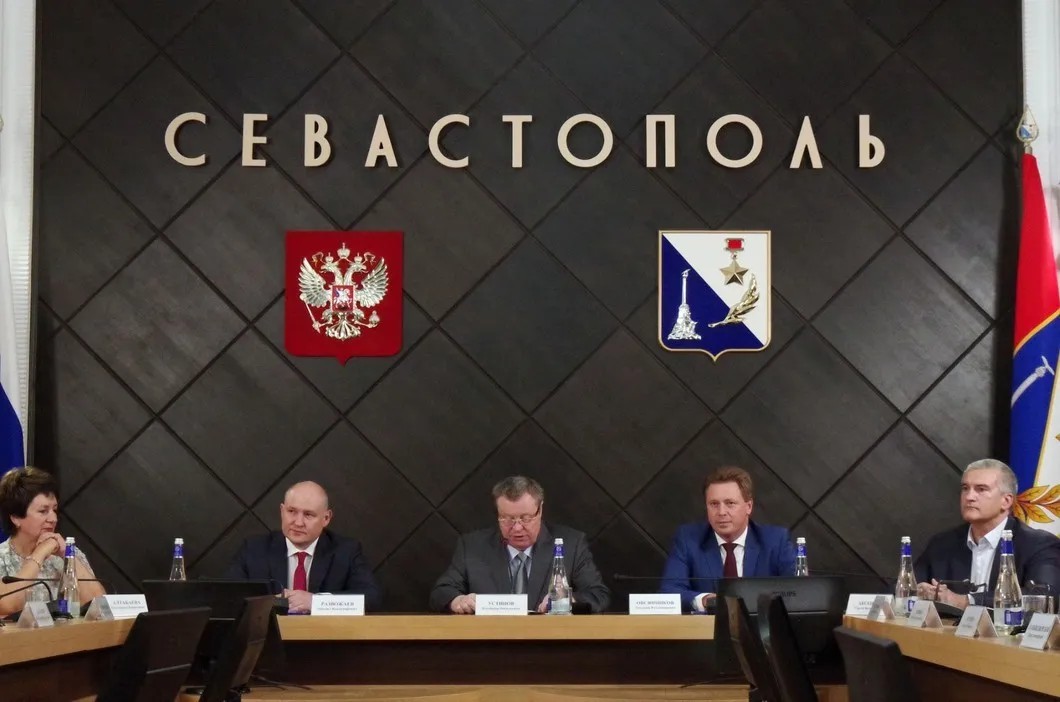
What’s the shady plan?Local opposition fears this is all a part of the plan to clear the way for re-election of the acting governor and United Russia regional head Mikhail Razvozhaev later this September. To become a candidate, he needs just 12 signatures of municipal councilpeople. Ruling United Russia already controls 73% of the municipalities. Still, by triggering disbandment of municipalities with substantial opposition groups, it wants to make sure that no other opposition group has a chance of nominating an alternative candidate.
A Crimean test ride. Local brunch of the ruling party justifies the push to dissolve municipal councils with Russia’s recent constitutional amendments. Although they still await a green light through a pending referendum, the Kremlin-backed officials in Crimea are already testing what might become an opposition suppression tactic. A local member from opposition Communist Party Vasily Parkhomenko warns of a precedent:
“In principle, no one has encountered such dirty election technology in Russia.”
A glitch in the plan?Despite mass resignations within two councils, they fell short of votes for dissolution and now must go through the courts. Furthermore, angered opposition might have a plan on how to outsmart the ruling party. If dissident factions unite, they could trigger even more councils to dissolve — that will derail the gubernatorial elections altogether.
Read the full story on Sevastopol’s controversial elections here.
Other Top-Stories Russia Has Been Reading
- Russia’s crisis exit plan benefits corporations only. After weeks of inaction, the government finally rolled out a crisis response plan to support the economy hit by the pandemic. In this week’s popular op-ed, our economist Dmitry Prokofiev says this plan however envisions citizens paying for the crisis. He argues that the government clearly prioritizes the well-being of the country’s export-oriented economy of raw materials over the consumer economy that benefits the daily life of working Russians. Leaving small and mid-size businesses without any help will lead to more unemployment, which will result in more people willing to do a job for less money. Cheaper labor, in turn, will allow large enterprises better profit margins. A bailout for corporations, the Kremlin style.
- Azar is free.We keep tracking the fate of arrested Novaya Gazeta journalist and municipal deputy Ilya Azar. He was jailed for 15 days for holding a solitary picket. His detention sparked more protests and more arrests in Moscow — further 150 people joined Azar in jails. Following a public uproar, a local court reduced his arrest from 15 to 10 days. Azar was released on Sunday and has promised to continue picketing — because it’s not a crime.
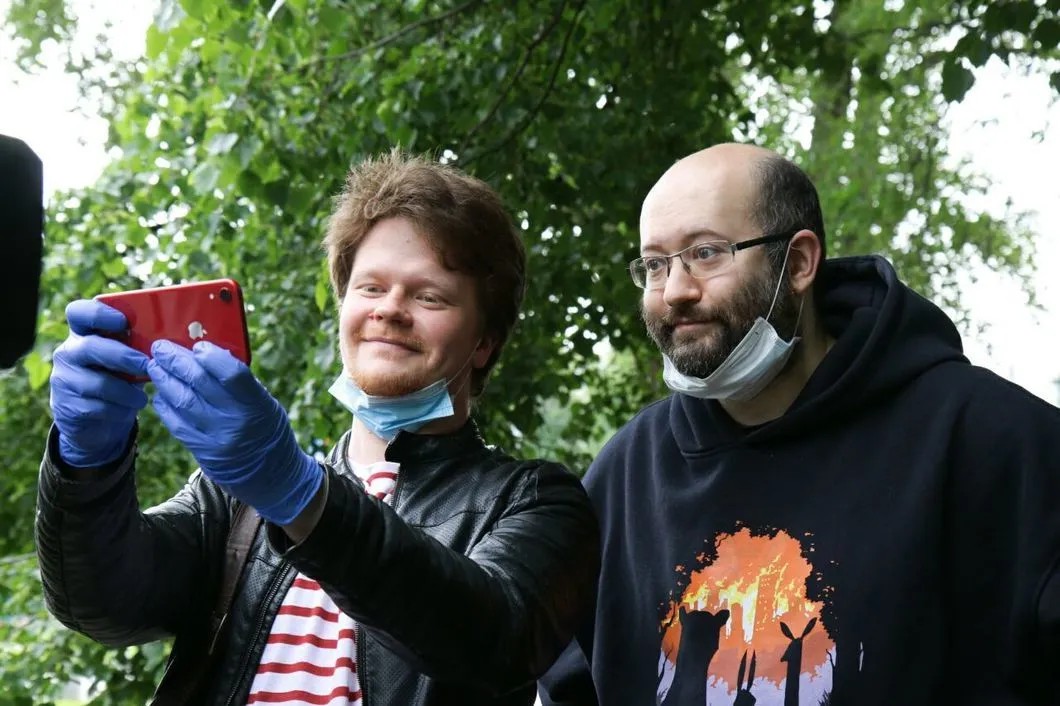
Thanks for reading!To keep up with Novaya Gazeta’s reporting throughout the week, you can follow us on Facebook, Twitter, Instagram, and Telegram. Our video content is available on Youtube and don’t forget to visit our website for the latest stories in Russian.
— The Novaya Gazeta Team
